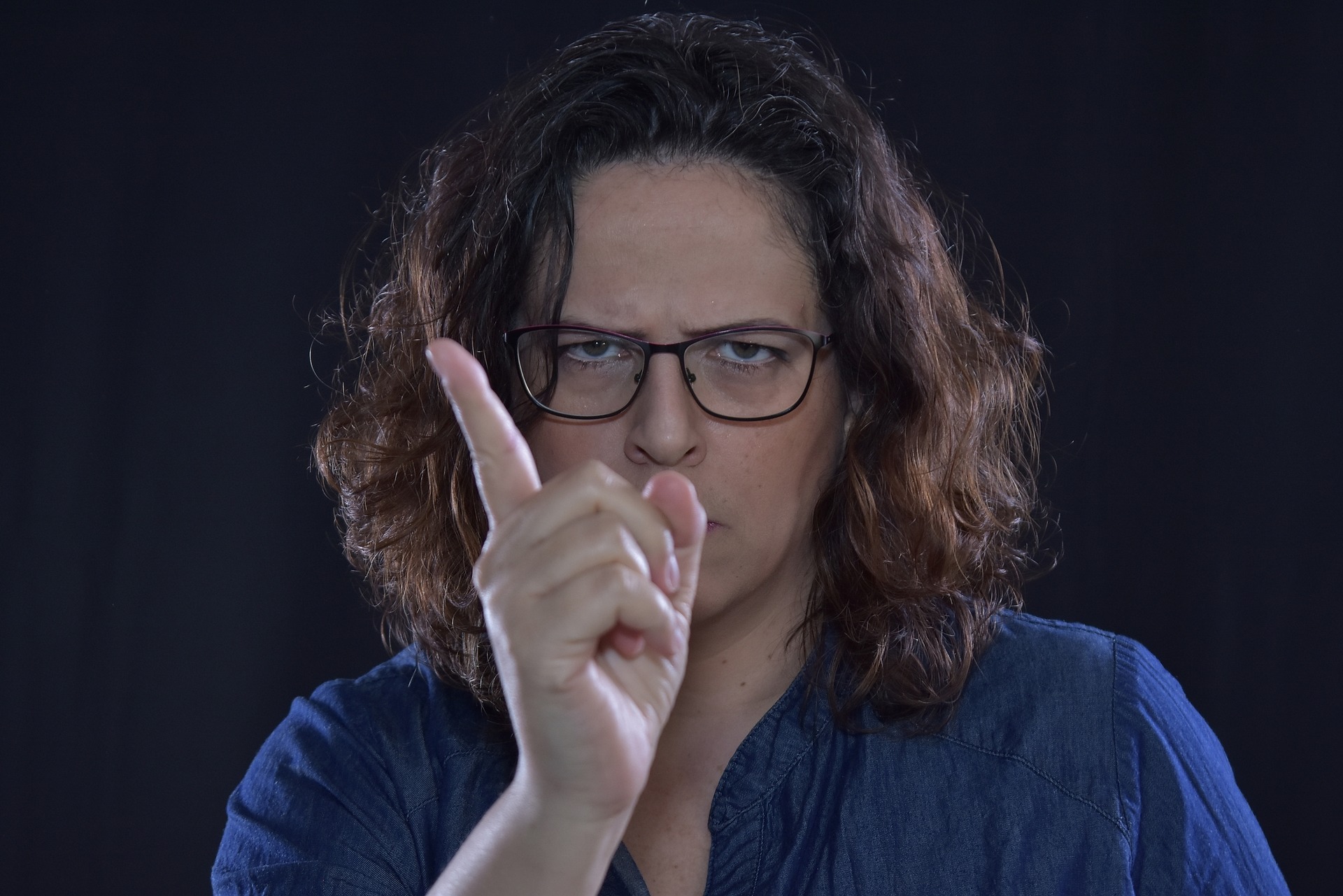Technology and thinking
 There are many conflicting claims in the media about the role that technology has in our thinking. On the one hand, there is a lot of research that seems to indicate that we are easily manipulated by technology - including what we see on our Facebook feed. This research has been gobbled up by marketing companies looking to take advantage of our System 1 thinking to sell us things that we don't need.
There are many conflicting claims in the media about the role that technology has in our thinking. On the one hand, there is a lot of research that seems to indicate that we are easily manipulated by technology - including what we see on our Facebook feed. This research has been gobbled up by marketing companies looking to take advantage of our System 1 thinking to sell us things that we don't need.
Another set of research seems to show that engaging with technology may improve our problem solving, spatial reasoning and creativity. So which one is it? Is technology limiting our ability to make good decisions? Improving that skill? As you can probably guess, it appears to be a bit of both.
As we have seen, dependence on heuristics in System 1 thinking can result in cognitive biases - consistent but mistaken beliefs about how the world works. This process could be influenced by our immersion in a digital world such as our engagement with social media.
Frequent use of social media could reinforce cognitive biases such as confirmation bias as we can select the information which confirms our view. Algorithms used by social media networks may further amplify this effect as information that is in line with our status updates or browsing history is ‘pushed’ to us through social media feeds. Even in our online shopping, we are exposed to advertisements that fit our past purchasing behaviour.
Frequent use of social media may also intensify negative cognitive biases based on comparisons between ourselves and the apparent experience of our online friends. Research indicates that social media may have an effect on both our self-concept and our self-esteem.
Psychology terminology
Self-concept and self-esteem are clearly linked, but they are not the same thing.
In simple terms, the difference can be thought of as follows:
- Self-concept refers to our view of who we are. Baumeister (1999) defines self-concept as the individual's belief about oneself, including the person's attributes and who and what the self is. Self-concept includes how we perceive our own personality, what we are good at, and what we like to do. There is no element of ‘judgment’ in self-concept, it is simply our view of who we are rather than an emotional feeling about who we are.
- Self-esteem refers to our emotional response to our self-concept. For example, are we happy about who we are? Self-esteem is a person's overall subjective evaluation of his or her own worth.
Social Comparison Theory and social media
Social Comparison Theory (Festinger, 1954) postulates that there is a drive within individuals to have accurate self-evaluations. We determine our own social and personal worth based on how we compare to others. People compare their experiences to that of those around them as a way to work out what kind of person they are (self-concept) and how they should judge themselves (self-esteem). We might compare our feelings, experiences, abilities, and situation with those of our friends as a way to judge our own value and place in the world.
Many social media networks provide an increased opportunity for social comparison as they allow users to maintain a very clear idea of ‘what everyone else is doing’ (for example, through status updates) and compare this to their own daily routine. Although we all engage in this kind of social comparison to some extent, it seems clear that some people are more interested in doing so and may be more influenced by any negative comparison. These individuals may be more vulnerable to a negative cognitive bias - a tendency to compare themselves negatively to others, thereby reducing their self-esteem and potentially impacting their mood.
This risk of negative comparison may be further intensified due to the likelihood that comparisons based on information from social media are upward comparisons – comparisons where we deem the experience, behaviour, and characteristics of others to be preferable to or better than our own. This is because most people present a ‘best case scenario’ of themselves online. People are strongly motivated to post a status update describing something they are doing with friends which seems exciting and enjoyable rather than an update stating that they are currently not doing much and feeling a bit bored on their own!
Evidence from Chou and Edge (2014) suggests that the availability heuristic is also a factor in the way our use of social media influences our thinking. We are likely to base our self-esteem on those examples we can most easily remember (the most available) and that are likely to be the most different from our own experience. In simple terms, we are most likely to remember the posts describing people having the most fun and excitement and compare our own experience against that benchmark.
Research in psychology: Chou and Edge (2012)
 Chou and Edge (2012) aimed to test the influence of the availability heuristic on how Facebook users evaluate themselves in comparison to other people.
Chou and Edge (2012) aimed to test the influence of the availability heuristic on how Facebook users evaluate themselves in comparison to other people.
They used an opportunity sample of 425 US undergraduate students. Participants completed a survey including a 10 point Likert scale allowing them to indicate how strongly they agreed with a series of statements such as “many of my friends have a better life than me” or “many of my friends are happier than me”. They also indicated how many hours a week they spent on Facebook, how long they had used FB, the average time spent actually with friends per week, and the number of ‘friends’ on Facebook whom they did not actually know personally.
The results showed that participants who spent the most hours per week on Facebook were more likely to agree that ‘other people are happier than me’. By contrast, those who spent the most time out with friends in the ‘real world’ were very unlikely to feel that ‘other people are happier than me’ or ‘many of my friends have a better life than me’. Interestingly, those participants who reported having a larger number of contacts not personally known to them were very likely to agree that ‘many of my friends have a better life than me’ but did not feel that other people were happier.
Chou and Edge concluded that more time spent on Facebook means that examples of other people engaged in exciting, fun, and social activities are more ‘available’ - and Facebook users are very likely to compare their own lives to these examples. In addition, they found that we over-estimate the extent to which the behaviour of other people reflects their disposition rather than their situation. For example, we tend to think “Mary is always posting exciting status updates because she is much more fun than me” rather than “Mary is away on holiday at the moment; of course, she is posting lots of interesting things”.
Like a lot of research on the impact of the digital world, this study relies on self-reported survey data from younger people. This could be seen as appropriate as this age group may be more engaged with social media and therefore more vulnerable to any negative consequences. However, this assumption may disregard the potential impact on a wider population of users.
A growing body of research seems to confirm the idea that more intense use of social media can have negative effects. For example, a large, longitudinal study by Shakya and Christakis, (2017) demonstrated a negative correlation between ‘liking’ other people’s content and mental health. In simple terms, Facebook users who clicked ‘like’ more often were likely to have less positive mental health. Although interesting, this evidence may suffer from bidirectional ambiguity; does more use of Facebook reduce mental well-being or do those people already suffering from poor mental health make greater use of Facebook?
TOK: Ethical thinking
 It is important to recognize that the interaction between cognition, emotion and use of social media seems to depend on individual differences; many people may be at little or no risk at all for lowered self-esteem and/or depression. Gibbons and Buunk (1999) have proposed a Social Comparison Orientation (SCO) - that is, a personal trait in which people exhibit different degrees of uncertainty about reality and self-knowledge which leads to higher or lower levels of social comparison.
It is important to recognize that the interaction between cognition, emotion and use of social media seems to depend on individual differences; many people may be at little or no risk at all for lowered self-esteem and/or depression. Gibbons and Buunk (1999) have proposed a Social Comparison Orientation (SCO) - that is, a personal trait in which people exhibit different degrees of uncertainty about reality and self-knowledge which leads to higher or lower levels of social comparison.
This research raises important questions about who uses social media, and how they use it.
Questions to consider
Should people be made aware that they could be more or less at risk of negative cognitive biases and low mood if they use social media like Facebook? Should this be something Facebook and other social media networks are responsible for?
Positive influences of technology on thinking
Contrary to what many of the headlines out there tell you, there is research that indicates that technology may actually be improving thinking and decision-making skills - especially in the study of the effects of moderate video gaming.
A recently published meta-analysis (Uttal et al., 2013) concluded that the spatial skills improvements that result from playing shooter video games are comparable to the effects of high school and university-level courses aimed at enhancing these same skills. Further, this recent meta-analysis showed that spatial skills can be trained with video games in a relatively brief period, that these training benefits last over an extended period of time, and crucially, that these skills transfer to other spatial tasks outside the video game context. In addition to spatial skills, researchers have also found evidence that video games are an excellent means of developing problem-solving skills.
According to Glass, Maddox, and Love (2013), playing a fast-paced video game can improve strategic thinking. In their study, they used a sample of 72 female undergraduate volunteers. In order to be in the sample, the participants had to regularly play video games for less than two hours a week on average.
At the beginning of the study, the researchers measured the volunteers’ cognitive flexibility - that is, their ability to switch between cognitive tasks and to "think on their feet" when solving problems. The participants were then asked to play video games for 40 hours over an eight-week period - either a fast-paced game that required strategic thinking (StarCraft) or a simulation game (The Sims). At the end of the eight weeks, the results showed that those who had played StarCraft had shown greater improvement in cognitive flexibility. A limitation of the study, however, is that the study was not longitudinal. The participants' level of cognitive flexibility was measured at the end of the study, but not after a later period. We do not know if the effects were long-term.
Daphne Bavelier argues that the effects are long-term and that they transfer to solving a large range of problems.
Research in psychology: Bavelier et al (2011)
To investigate the connection between action games and decision making, Bavelier and her team first studied two groups of men and women, average age 26, who said they had not played video games in the past year. One group was told to play two action video games for two hours for a total of 50 hours. The second group was asked to play a simulation game in which they had to make decisions about a character's life.
After the 50 hours of game time, members of both groups were asked to look at a computer screen and do a simple test. The computer screen showed a pattern of dots. Participants had to determine which way the majority of dots were moving by pressing a key on the keyboard. Some of the patterns were easy - with pretty much all of the dots heading in the same direction. Others were more complex.
Findings showed that although both groups could accomplish the task, those who had played the action video did the task faster and with fewer errors - that is, they were able to decipher a large amount of information more quickly and come to a decision.
Bavelier and her lab have carried out a lot of research on the positive effects of gaming on cognitive processing. Watch the following video clip to get a better understanding of her research and its findings.
 It appears that gaming may actually change our brains. Kühn et al (2013) carried out a study to determine the effects of prolonged video game playing on the brains of young adults. In this study, the researchers had participants play Super Mario 64 for 30 minutes every day for two months. The experiment used a pre-test / post-test design. The researchers carried out MRI scans on the participants both before and after the two-month period of game playing. In addition, the MRIs were compared to a control group that did not play video games.
It appears that gaming may actually change our brains. Kühn et al (2013) carried out a study to determine the effects of prolonged video game playing on the brains of young adults. In this study, the researchers had participants play Super Mario 64 for 30 minutes every day for two months. The experiment used a pre-test / post-test design. The researchers carried out MRI scans on the participants both before and after the two-month period of game playing. In addition, the MRIs were compared to a control group that did not play video games.
The MRIs showed that the volume of grey matter in the prefrontal cortex, hippocampus, and cerebellum had increased and was on average larger in the gaming group than in the controls.
Remember the roles of the different parts of the brain:
The prefrontal cortex is involved in strategic planning, decision making, and cognitive control.
The hippocampus is involved in memory formation, with the right hippocampus being particularly involved in spatial navigation.
The cerebellum is involved with fine motor function.
These findings seem to lend biological support to some of the studies above. However, we should use a bit of caution. First, the sample size was small. In order to trust these findings, the study would need to be replicated and obtain similar results.
Checking for understanding
When we tend to seek out information that supports our existing beliefs, which cognitive bias are we using?
The key difference between "self concept" and "self esteem" is
Which of the following is not true of Social Comparison Theory?
Theorists argue that some people have a great need to compare to others. This trait is known as Social Comparison Orientation.
According to the availability heuristic, we make decisions based on
The study by Chou and Edge (2014) is an example of

 IB Docs (2) Team
IB Docs (2) Team
